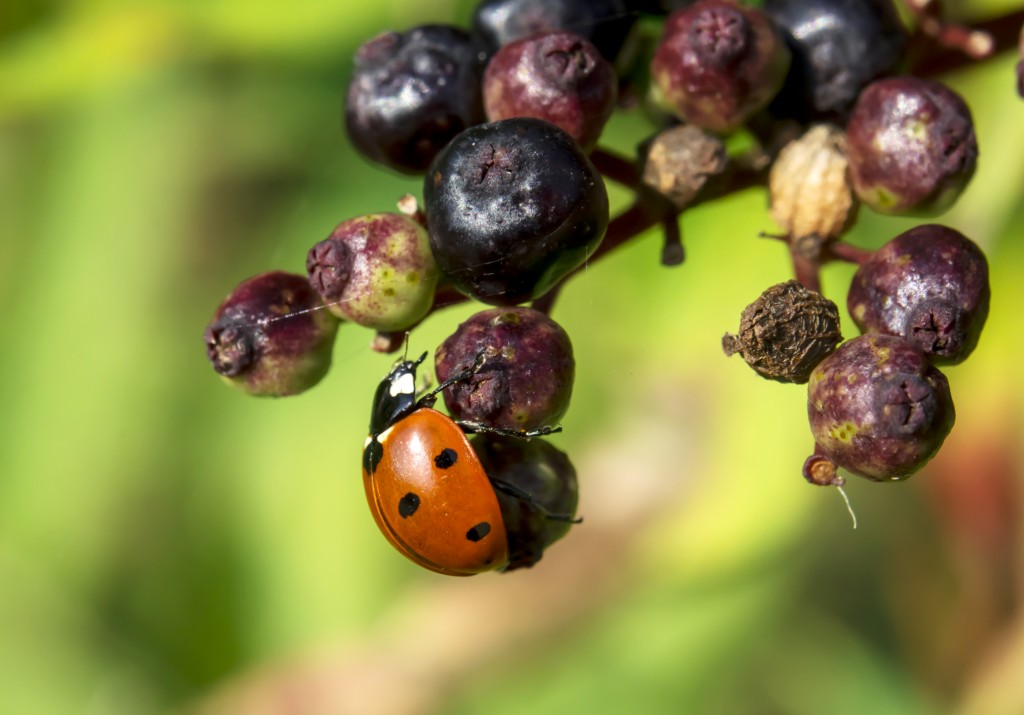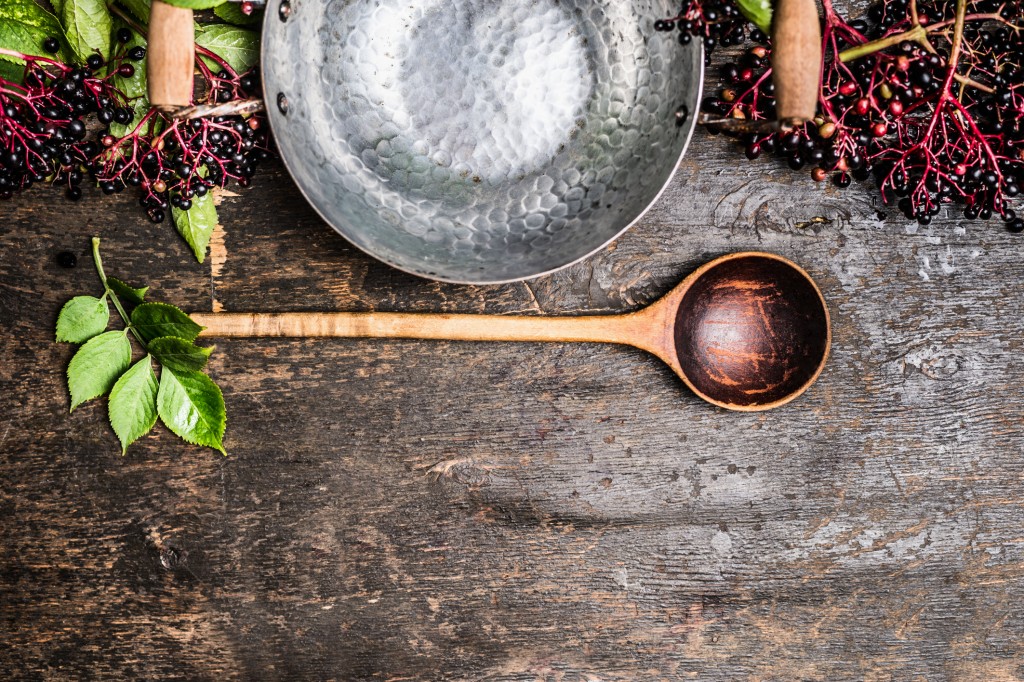Elderberry Is an Anti-Flu Agent Worth a Try

Elderberry is a traditional medicine plant known for its antiviral and anti-influenza properties. Record of its use is recorded through history in Europe, North Africa, parts of Asia and among Native Americans. Hippocrates referred to it as his “medicine chest” and other healers and herbalists have used berries from this common shrub for centuries. Walk into any health food store or natural grocery and you may notice a variety of elderberry products in the supplement aisle. But is there research to back up these claims? Is this the immune-boosting, anti-flu supplement to keep us safe this year? Read on to learn more about the evidence behind this traditional therapy.
Efficacy against Disease

Elderberry or Sambucus nigra has been used historically as an anti-flu agent, to treat HIV/AIDS, to support the immune system, as an anti-inflammatory, as a cancer fighting agent, as a fever reducer, as an anti-herpes treatment and as a diuretic and laxative. Elderberry has been best studied on influenza and positive outcomes have been observed in research dosing one Tablespoon of liquid extract four times daily which reportedly reduced symptoms and duration when given within 48 hours of initial flu symptoms. In another study, participants received 15 milliliters of elderberry syrup four times a day for five days and found their symptoms were relieved an average of four days faster than the placebo control group. In vitro (testing in a lab using liquid cultures), elderberry concentrates have been shown to inhibit influenza A and B, displaying antimicrobial and antiviral properties. Research shows that the flavonoids (antioxidants) in elderberry actually bind to the virus, blocking its ability to infect host cells. One study even suggests that the H1N1 influenza inhibition of elderberry flavonoids are comparable to known anti-influenza medications on the market.
The mechanism of action of this medicinal plant is thought to be connected with the flavonoid antioxidants, specifically anthocyanidins, in the ripe fruit. Other aspects of elderberry fruit include tannis and essential oils which are thought to aid in its antiviral properties. Elderberry has also been shown to reduce inflammation so a reduction in flu symptoms may be partly attributed to these healthful assets.
Safety and Interactions

Short term studies between two-to-five days have suggested that elderberry extracts and lozenges are safe when taken orally. Keep in mind that elderberry leaves, stems and unripe or uncooked fruit contains toxic compounds that can cause dangerous and damaging effects so do not consume in any way other than a product that has been treated and packaged properly. Because elderberry is an immune stimulant, it interacts with immune suppressing medications and some autoimmune diseases.
There is some evidence that elderberry can help shorten the duration of flu symptoms if taken in the correct dose soon enough after symptoms have started but be sure to check with your doctor before taking this supplement to ensure it is safe for you as well as which product and dosing is most appropriate.
References:
Charlebois D. Elderberry as a Medicinal Plant. https://hort.purdue.edu/newcrop/ncnu07/pdfs/charlebois284-292.pdf. Published 2007. Accessed 12/30/15.
Krawitz C, Mraheil MA, Stein M, et al. Inhibitory activity of a standardized elderberry liquid extract against clinically-relevant human respiratory bacterial pathogens and influenza A and B viruses. BMC Complementary and Alternative Medicine. 2011;11:16.
Natural Medicines Database. Elderberry. https://naturalmedicines.therapeuticresearch.com/databases/food,-herbs-supplements/professional.aspx?productid=434#scientificName. Updated 2/14/15. Accessed 12/28/15.
Roschek B Jr, Fink RC, McMichael MD, Li D, Alberte RS. Elderberry flavonoids bind to and prevent H1N1 infection in vitro. Phytochemistry. 2009;70(10):1255-61.
Zakay-Rones Z, Thom E, Wollan T, Wadstein J. Randomized study of the efficacy and safety of oral elderberry extract in the treatment of influenza A and B virus infections. J Int Med Res. 2004;32(2):132-40.
Zakay-Rones Z, Varsano N, Zlotnik M, et al. Inhibition of several strains of influenza virus in vitro and reduction of symptoms by an elderberry extract (Sambucus nigra L.) during an outbreak of influenza B Panama. J Altern Complement Med. 1995;1:361-9.
Ginger Hultin, MS, RD, CSO, LDN, is a health writer and owner of Champagne Nutrition specializing in integrative health and whole food-based nutrition. She serves as Immediate Past President for the Chicago Academy of Nutrition and Dietetics, Chair-Elect of the Vegetarian Nutrition Dietetic Practice Group and is a Media Representative for the Illinois Academy. Read Ginger’s blog, Champagne Nutrition, and follow her on Facebook, Twitter, Instagram and Pinterest.
Ginger Hultin MS RD CSO LDN
gingerhultin@hotmail.com | @GingerHultinRD
Chair-Elect, Vegetarian Nutrition Dietetic Practice Group
ChampagneNutrition.com

